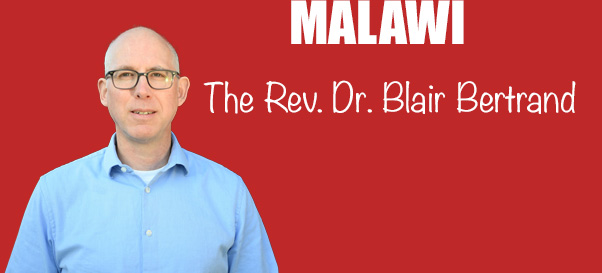
Attention has shifted past Cyclone Idai. The news stream has flowed on. SNC Lavalin. The burning of Notre Dame. The (non)release of the Mueller report. There is always more news. There is always something different to focus on.
Except here. Except when your house is gone, when your farming tools are gone, when everything that you own has washed or floated away. Except when you are eating at most one meal a day and that of nsima (a kind of cornmeal). When you live here, there is no news from outside that makes a difference to your life. Your attention is on where you and your family will sleep, what they will eat.
It is hard for those scrolling through their news feed or watching the news to slow down and really pay attention. Stories fly by, replaced by the next crisis. Many stories are too small to ever make it into the news cycle. A lot, including our addiction to news and social media, distracts our attention from the most needful things.
Even the best of intentions can distract us. Governments and activists and aid/relief agencies all want the best for people. Except, the people of Malawi, and those of Mozambique and Zimbabwe, are not numbers. They are not just victims of global climate change. Nor are they just aid beneficiaries. Yes, they are in some sense all three. Statistics are important, and larger policy analysis gives required perspective, and relief agencies must maximize limited resources. But all of these can distract us from the people before us.
I’ve come to realize that the relief of the kind required in Malawi is a large-scale enterprise. We are past the stage of buying-extra-food-for-your-neighbour kind of help. Multinational organizations have started to ramp up their efforts, moving past immediate help to longer term aid. In every kind of good relief project, the kind that is not small-scale person-to-person, you need to:
- assess the situation on the ground,
- structure a response that addresses the most pressing issues,
- implement that response, and then
- evaluate your effectiveness.
It is very much large-scale project management.
The main attention is put on implementing the response. People need help; tangibly helping people therefore is the goal. The assessment step could be viewed as less important. In the immediate aftermath of a disaster, assessment is easy. If I see someone without shelter, I can easily assess that they need shelter. I don’t need to probe too deeply to respond. Something temporary, like a tent, is what is needed and so I can get it for them. I am totally focused on implementing because assessing is easy.
Larger scale projects necessarily require more assessment. The needs are so many and the possible responses so varied that it would be foolish to formulate a plan without first assessing the situation. Still, it is a crisis, so organizations move forward with hunches rather than strict needs assessments. Organizations know what they have done in the past and what they can likely do in this situation and start to mobilize using their own self-understanding. Assessment of the beneficiaries’ needs hones the project but doesn’t define it.
For me, and not just me but other relief personnel that I know, assessment is actually one of the most profound theological moves of the whole relief enterprise. It slows us down and forces us to forget, just for a moment, our plans and our implementations, and puts the focus on the person in front of us. Assessment can be a box to tick, but for many good relief workers, it can also move to something deeper, something personal. Assessment is a way of paying attention to the stories of people’s lives. It brackets out the distractions and puts the attention on the small, the micro, the person sitting there in front of you. It is a kind of holy listening.
When we really listen and draw near to the truth of another’s personal story, we should be prepared to be emotionally devastated. Perhaps this fact is why we struggle against listening so much. The people who the news cycle has gone past have heart breaking realities that they are grappling with:
- A mother of three who is in a polygamous marriage and whose house collapsed in the floods. She is not the favoured wife and now sleeps on the porch of her husband’s preferred wife’s house and hopes that he will distribute some of the food aid to her and their three children.
- A father who claims he was denied food aid previously because of his political party affiliation. His neighbours received food but his family did not because he didn’t support a certain political party.
- A 12-year-old girl who is the head of her four-member family. Her house washed away and so she stays with an aunt. The aunt does not come to receive aid, indicating that the girl is left largely to her own devices to care for her three siblings.
- The translator who must halt the proceedings because the stories are too painful, too much like his own childhood. When person after person comes to describe their hunger pains and weakness it eventually becomes too much. He remembers being a child and suffering the very same pains.
For Christians we draw to the end of Lent. Maundy Thursday is here and Easter comes Sunday. Lent, that time set aside to prepare our hearts and our minds for the death and resurrection of Jesus Christ, is really a time of training our attention. It has been a time to set aside distractions whatever they might be and to focus on the most needful things.
On Good Friday we will pay attention to the pain of Christ on the Cross. On Holy Saturday we will sit with a mother devastated by the execution of her son. On Easter Sunday we will arrive with a group of faithful women, the first witnesses, to discover an empty tomb. In each of these we are participating in holy listening, allowing the one who suffers and grieves to take our attention away from all the other distractions of life.
To pay attention to God’s movement this weekend we need to practice by paying attention to the needful things in human life. There is life, there is death, and we will miss these if we are always chasing something else. Listening, dwelling with someone in their suffering, sharing their place even when it is painful, especially when it is painful, requires us to pay attention. Holy listening trains our attention so that we can do it better. Holy listening bears fruit even if we do not feel like we are doing anything because it is paying attention to the most important things.
There is life, there is death, and the promise of Easter is that there is life after death. Pay attention or you might miss it.


